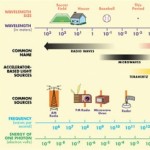- This topic has 36 replies, 5 voices, and was last updated 10 years, 2 months ago by
 alistu.
alistu.
-
AuthorPosts
-
-
September 12, 2015 at 4:04 pm #24670
 gaganpreet KaurParticipant
gaganpreet KaurParticipantHi pls guide me .i am building a 16 channel DWDM system . my gain is high , signal power at output is fine, OSNR is quite good (>50)but BER analyzer does’nt show BER < 10-9. also i dont get clear eye diagram.
pls find attached my .osd file for reference. -
September 12, 2015 at 4:28 pm #24673
 MHD NAParticipant
MHD NAParticipantHi gaganpreet Kaur,
Could you attach the paper you rely on it to read and help you with your project? -
September 12, 2015 at 4:35 pm #24674
 MHD NAParticipant
MHD NAParticipanti have analyzed it and i make first idea about your problem which is:
the transmitted power before fiber 2 is too large that makes nonlinearties in fiber 2 and maybe cause your problem with BER.
even that, please attach paper you are studying to give you actual answer. -
September 13, 2015 at 3:58 am #24684
 gaganpreet KaurParticipant
gaganpreet KaurParticipantpower required is high becoz we are trying to reralize parametric amplifier which works in HNLF . papers i am refering are not using optisystem
-
September 13, 2015 at 3:44 pm #24711
 gaganpreet KaurParticipant
gaganpreet KaurParticipantHi alistu not at all i am not using the powers as used by neither i am reproducing his results . i am designing a new system based on parametric amplification but my concern is eventhough signal power nd OSNR are hgh enough why BER is not showing the error probabilty less than 10-9
-
September 13, 2015 at 11:37 pm #24735
 alistuParticipant
alistuParticipantIn this case, I suggest that you decrease the power used in your system (since you use no referennce for the power value) and do the simulations to see if there is an improvement in the results. In the meanwhile, can you attach an image from your BER analyzers with the result of the simulation you have had? Thank you.
-
-
September 13, 2015 at 6:29 pm #24726
Ravil
ParticipantHi Gaganpreet,
Unfortunately, I am not able to open your scheme right now but I can suggest you to check your receiver’s sensitivity and the the dependence of BER on it. By the way, what kind of photo-diode are you using in your receiver?
-
September 14, 2015 at 1:15 am #24738
 gaganpreet KaurParticipant
gaganpreet KaurParticipanti am using PIN diode Receiver sensitivity is 0.875 and dark current 1 nA. signal to be detected is DWDM freqeuncy of 189.2 Thz. . sample rate is default 5 X bit rate . (appx 1.28 Thz) but Q factor received is 2.5677 and BER of order 10 ^-3 data rate chosen was 10 Gbps as well as 40 Gbps. , signal power shown by electrical power meter is of order 10^-3. nd noise is 10^-25 shot and theraml noise ony. my system is still running simulation so right now i am unable to attach results but as soon as i wud be able i will surely share the results snapshot.
-
September 14, 2015 at 1:17 am #24739
 gaganpreet KaurParticipant
gaganpreet KaurParticipantmy another concern is as i learnt from another post can use of elcectrical equalizer or any other kind of FEC help me . if yes how i should apply it.
-
September 14, 2015 at 1:19 am #24740
 gaganpreet KaurParticipant
gaganpreet KaurParticipanthi alistu if i decrease power OSNR which is already varying from 17-30 for all channles falls to less than 20 dB at all channels which i perceive is the minimum OSNR we need at receiver.
-
September 14, 2015 at 2:56 am #24742
 alistuParticipant
alistuParticipantCan you please upload a snapshot from your BER analyzer, so that I can see your current results? I understand the concern about OSNR, but if the increase in your calculation time is due to nonlinearities, then decreasing the power might actually help, as maybe the predominant reason for BER degradation is the nonlinear effect.
-
-
September 14, 2015 at 6:22 am #24749
 Ashu vermaParticipant
Ashu vermaParticipantHi! gagan,I have analyzed your attached file very carefully.I have some doubts regarding this.Best way to get help is by attaching the paper you are working on.Since you have launched 0 dB ,your fiber length is 120 km and after that you attached a dcf .Now after travelling this much distance ,you signal power come out to be -70dB .which is very less and after that you have used Raman amplifier.No doubt OSNR is good but i am confused in your co propagating pomp power which is very high and fed to HNLF .I didnt get your system actully ,and at receiver side you may add electrical bassel filter after pin.kindly attach paper
-
September 14, 2015 at 7:38 am #24751
 alistuParticipant
alistuParticipantHi Gaganpreet,
I just reduced your lasers linewidths to 2 MHz for each without making ANY other change to any other part of your system, and now you can have the desired BER. Unless there is a mention of laser linewidth in your paper, you can set your transmitter laser and your CW laser linewidths (after the pump laser) to 2 MHz and this will prevent further bothering to make any other changes to your design. In many CW low power lasers, I have even seen lasers with much less linewidth than 2MHz, while in some cases for high power lasers, the linewidth is high. So you can even make the transmitter lasers’ linewidth even less and instead, increase the linewidth for your CW laser and get the good results. So please just check your paper for any value for linewidths.
Cheers!
-
September 14, 2015 at 9:08 am #24755
 Ashu vermaParticipant
Ashu vermaParticipantHi Alistu,what value of Ber you got and it is possible to decrease linewidth 2MHz? Just for knowledge,do you have any article in which laser with 2MHz linewidth is used?
-
September 14, 2015 at 9:16 am #24759
 alistuParticipant
alistuParticipantHi Sam,
I got BER of about 10^-30 by decreasing the laser linewidths. I believe Gaganpreet can surely decrease the laser linewidths (at least for the transmitters) to these amounts and even less, unless the paper whose results he’s trying to get uses 10 MHz linewidth. Even so, he can decrease the linewidth provided that he mentions it in his own work.
You can refer to OFDM samples where the linewidths have been set as 0.1 MHz and many papers using Optisystem with the same setting.
Cheers!
-
September 17, 2015 at 2:38 pm #24889
 Ashu vermaParticipant
Ashu vermaParticipantThank you for correcting the problem in ststem.I just want to confirm about linewidth beacause this value is less and 0.1 MHz as you said reported i n many papers ,i think it would be specificly for the case ofdm ,may be due to phsse matching coherent detectiion.However i have not seen this value for other systems.But if this value in optiwave samples than it would be fine to use this value Xould you please attach the modified file as i have seen,Gagan is struggling for results and could get the value mentioned above.
-
-
-
September 14, 2015 at 3:23 pm #24771
 gaganpreet KaurParticipant
gaganpreet KaurParticipanti will surely analyse results with decreased linewidths and get back
thanks nd regards -
September 15, 2015 at 6:42 pm #24792
 gaganpreet KaurParticipant
gaganpreet KaurParticipantHi alistu sorry for the delay , pls find attached the result of BER analyzer. with your advice my run time for 120 km fiber transmission has reduced to 8 min . i decreased the pump powers for my amplifier. no doubt gain decreased but OSNR improved becuase for high pump powers though i was getting very high gain but OSNR degraded signifcantly because of increased crosstalk due to pump-pump interactions and non-linearities.
Now pls help me improve my BER. as advised i reduced laser linewidth to 2 MHz but no improvement.BER is still not nearing 10^-9.-
September 16, 2015 at 2:16 am #24800
 alistuParticipant
alistuParticipantHi Gaganpreet,
I don’t see any attachments to your comment. Please make sure if you have changed linewidths for both lasers (the WDM CW laser and the CW laser used for pump coupler) to 2 MHz. Here I have attached the results from my simulation. I noticed that your sequence length is low and that’s why your results are not always reliable. Please increase your sequence length and then re-run the simulation with linewidth=2 MHz.
Regards
-
-
September 16, 2015 at 3:51 pm #24831
 gaganpreet KaurParticipant
gaganpreet KaurParticipanti have change my sequnce length for order 9 that is 512 bits. now should i change number of samples per bit too? u may find my files- BER results prior to change in sequence length but linewidth 2 Mhz for both WDM as well as pump laser.
-
September 16, 2015 at 3:52 pm #24832
 gaganpreet KaurParticipant
gaganpreet KaurParticipantattached file
-
September 16, 2015 at 3:54 pm #24834
 gaganpreet KaurParticipant
gaganpreet KaurParticipantsoory my ber was saved as .bmp so did’nt get uploaded. i will resend results after change in sequence length. though it has not helped but i have changed samples per bit too . lets see if it works.
-
September 17, 2015 at 3:27 pm #24892
 gaganpreet KaurParticipant
gaganpreet KaurParticipantHi alsitu changing sequence length to 512 from 128 did not help it just made processing time higher. pls can somebody tell me how to set cut off frequency, sample rate , bit rate in optical receiver. i mean what relationship do they hold so that change in one value effects other . my ouput OSNR is as high at 35 dB power is 10^-3 mW but BER and eye diagram not coming. sam is right i am literally struggling to get permissible BER. i fail to understand under what setting of sample rate, cut off etc output comes . sometimes no output is there no graphs no value of Q factor, BER evn when electrical power meter shows output.
-
September 18, 2015 at 2:20 am #24895
 gaganpreet KaurParticipant
gaganpreet KaurParticipantHi Alistu i am waiting for your response please.i need help . i have designed number of projects in optisystem but for no design maybe single channel 8 channel , 16 channel or 100 channel i have been able to get any BER results or eye diagram. even few samples i ahve checked show Q- factor less than 6 ( minimum required) and consequently BER < 10 ^-9. kindly sam , alsitu, damian pls somebody help my results are stuck just before receiver part because of this.
-
September 18, 2015 at 11:49 am #24906
 alistuParticipant
alistuParticipantHi Gaganpreet,
Sorry for the delay in replying. I did not have access to the software for a while. As I mentioned earlier, I just made the changes in the lindewidths of the lasers as I have depicted. I suggest that you change the sequence length to 2048 and there is no need to change the samples per bit. Please let me know if it helps.
-
-
September 18, 2015 at 3:33 pm #24913
 gaganpreet KaurParticipant
gaganpreet KaurParticipantHi alsitu at ur advise i have made sequnce length= 2048, but pls i want to know relation between sample rate, centre frequency and cut off frequency for optical receiver.
-
September 19, 2015 at 2:36 am #24923
 alistuParticipant
alistuParticipantSample rate is determined by multiplexing samples per bit and the bit rate. The higher the sample rate, it is expected in many cases that the performance is increased. Center frequency of the optical receiver should be the same as the frequency used for up-conversion. And the cut-off frequency is related to the bandwidth of the signal, which is related to the bit rate (or symbol rate).
-
-
September 19, 2015 at 3:36 pm #24942
 gaganpreet KaurParticipant
gaganpreet KaurParticipantthank you so much alistu but something is seriously wrong i have decreased my channels to 10 now and power at output of PIN diode is 33mW at a wavelength of 190.1 Thz so i put center freq to 190.i Thz , i ahve increased sample per bits and sequence length too. cutt off freq is 0.75 * bit rate, sample rate of PIN is 5*sample rate which appx to 1.41 *10^14 Hz.but there is no output at BER analyzer. bit rate is 100 Gbps. even linewidth as i saw from samplefile is decreased tp 0.1Mhz. don’t know what to do?
-
September 19, 2015 at 4:00 pm #24946
 alistuParticipant
alistuParticipantI assume we are talking about the file you have attached on the thread question post named “new_16_dist_ra_fopa.osd”, right? I would like to know if you have exactly used the same file in order to make the changes I have mentioned (in linewidth and sequence length). Since you use an older version than I do, please make the changes to the exact file that I have addressed and then upload it here so that I can check. Thanks.
-
-
September 19, 2015 at 3:40 pm #24943
 gaganpreet KaurParticipant
gaganpreet KaurParticipantplease what does this constellation signify
find the file attached-
September 19, 2015 at 4:05 pm #24947
 alistuParticipant
alistuParticipantI have experienced getting more or less the same constellation as this one. I don’t know what has exactly happened to make it like this and I think it’s hard to tell beside wrong implementation or parameterizing. By the way, I saw no osd files attached to your post. However, please do as I have said in my former post and don’t forget to attach the corresponding file.
-
-
September 20, 2015 at 3:25 am #24951
 gaganpreet KaurParticipant
gaganpreet KaurParticipantalistu pls find attached the files for BER results , its settings and transmitter . i shall be very thankful for ur help
-
September 20, 2015 at 3:27 am #24955
 gaganpreet KaurParticipant
gaganpreet KaurParticipantKindly fina attached BER results too
-
September 20, 2015 at 3:46 am #24958
 alistuParticipant
alistuParticipantThank you Gaganpreet, but these are not what I had asked for. If you are currently still trying to solve the problem with the system you have introduced in your main post (the one with the main question, for which you have started this topic), please do as I have asked in my reply #24946 on this page and attached the demanded file.
-
-
September 21, 2015 at 12:52 am #24980
 gaganpreet KaurParticipant
gaganpreet KaurParticipantyes i am still struggling with the problem. yup i will get back with changes suggested. actually simulation is taking too long for a 10 channel sytem with suggested sequence length, so i did’nt wait to complete the simulation and see results it took more than 2 hrs in transmission fiber only(3hr, 27 min) and still had to travel through HNLF. so it would have run for atleast 7-8 hrs. but now i will surely run it as i am in serious struggle to get good /min BER
-
September 21, 2015 at 4:36 am #25004
 alistuParticipant
alistuParticipantI did not know about this being so time consuming for you, However, I have tried it on my on PC and although the results changed when the sequence length was short, I managed to get the result whose screenshot I have uploaded. Since you have implemented the whole system using version 7, I don’t think my good results are because of the version I am using.
-
-
April 15, 2016 at 6:27 am #36812
 Gede TeguhParticipant
Gede TeguhParticipantHmm, i got same problem too mr. gagan. I design wdm with oadm and rof. I didnt realize why i always get BER > 10 ^-9 and Factor Q <6 if using 1 – 10 gbps bit rate. But when i used 622 mbps bit rate, i got BER > 10 ^-9 and Factor Q <6 . Can i get explanation too? Thank you guys
-
-
AuthorPosts
- You must be logged in to reply to this topic.

